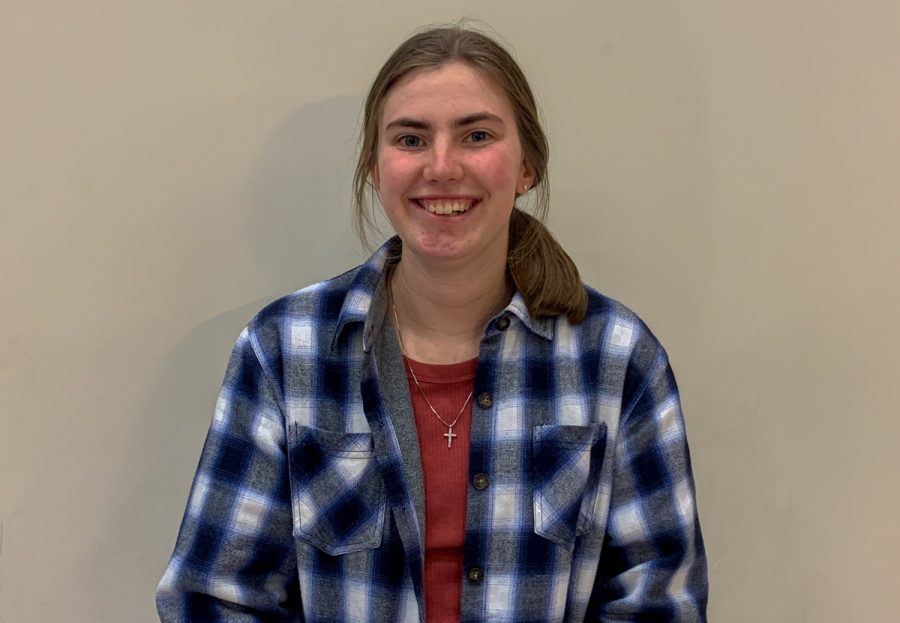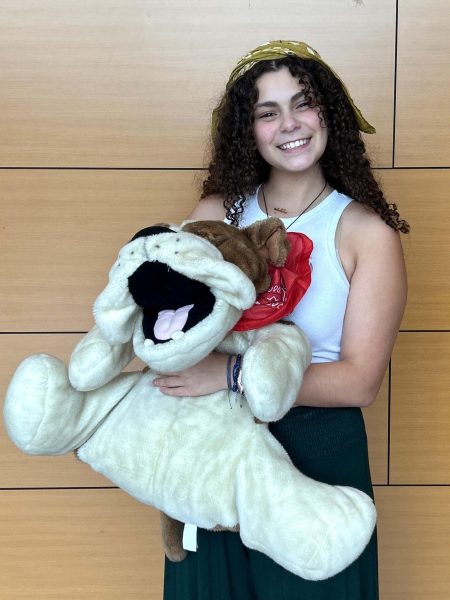Conquering Cancer
EHS senior turns adversity into action
“It was hard to share my journey at first because I didn’t know how people would react and only my close friends and family knew about my diagnosis. But I knew it had to be done because of the healthcare inequities,” Pekarek said.
November 16, 2021
When Edina High School senior Sophie Pekarek felt a lump on her back last March, she waved it off.
“I thought it was a cyst or something—I didn’t even know anything was wrong,” Pekarek said. “I just wanted to get it removed, mostly because it was growing bigger and becoming annoying.”
Pekarek made an appointment to remove the mass and underwent a fairly routine tissue removal procedure. Barely a week post-op, she received a call from her surgeon stating that the resulting biopsy was abnormal and required further evaluation.
Two weeks after the initial operation, Pekarek attended her first check-up—this one had answers and a diagnosis. The doctor revealed that the “cyst” was actually dermatofibrosarcoma protuberans (DFSP), a rare type of skin cancer that presents itself as a lump of tissue on the upper level of the skin.
“I remember just sitting in the chair, looking out of the window and staring off into space,” Pekarek said. “I didn’t even hear everything [the doctor] said.”
She was referred to Mayo Clinic in Rochester after the diagnosis since DFSP’s rarity and high rate of recurrence warranted specialized medical attention. Pekarek calls the initial consultation “reassuring,” as she found out that the treatment would consist of a single surgery and consistent check-in appointments.
After her first appointment, Pekarek started reaching out to friends and teachers for support. Kate Dahlager, Pekarek’s close friend, was one of the first people she told about the diagnosis.
“At first when she sent me a long text explaining everything, [the cancer] had a really long, technical name. So I didn’t know that it was cancer until I looked it up. And when I did look it up, it was really scary just to see how rare it was,” Dahlager said. “I know she caught it early on, but knowing someone personally with cancer and with her being one of my best friends, was really tough and scary.”
Dahlager and Pekarek relied on each other throughout the summer, going on socially distant walks or connecting virtually.
“I really just wanted to be there as a support, especially after her surgery and through her recovery,” Dahlager said.
Pekarek underwent the surgery mid-May at Mayo, which proved to be sufficient treatment. At both the May post-op appointment and her six-month check-in earlier this November, Pekarek was given the all-clear.
Now cancer-free, the Edina High School student is turning her experiences into action. She cites healthcare budgeting inequities as the catalyst for her advocacy—on average, the federal budget for cancer research allocates only 4% of their funding to childhood cancer research. Driven by her own diagnosis and other stories of children with cancer, Pekarek has become an outspoken advocate for equitable and safe treatments.
“It was hard to share my journey at first because I didn’t know how people would react and only my close friends and family knew about my diagnosis. But I knew it had to be done because of the healthcare inequities—4% isn’t enough,” Pekarek said.
This past September during Childhood Cancer Awareness Month, she created a GoFundMe to raise money for St. Jude’s Children’s Hospital, an institution that specifically performs and researches childhood cancer treatments. Thus far, the fund has amassed nearly $2,000 in donations.
Pekarek doesn’t plan on stopping her advocacy anytime soon. In the future, she plans to continue her push for healthcare equity and safe cancer treatments with constant public outreach.
“It’s just really important that we continue to advocate—even when it’s not September, even when it’s not Childhood Cancer Awareness month,” Pekarek said. “Cancer doesn’t only happen one month out of the year. We have to constantly be advocating for what’s right.”





NANCY VAN WINKLE • Nov 21, 2021 at 3:18 pm
Sophie thank you for sharing. You are an amazing girl
Mike Pekarek • Nov 19, 2021 at 5:53 pm
Good job, Sophie! Proud of you.